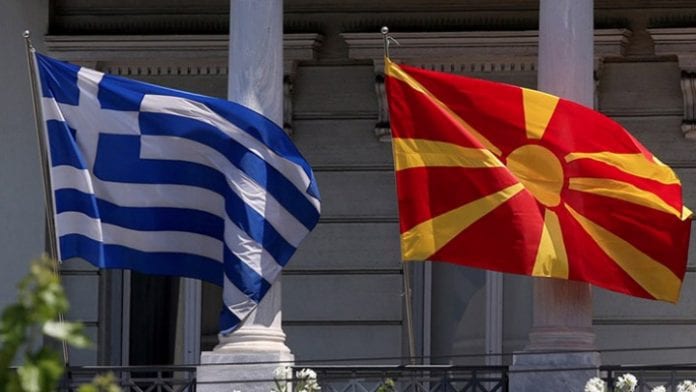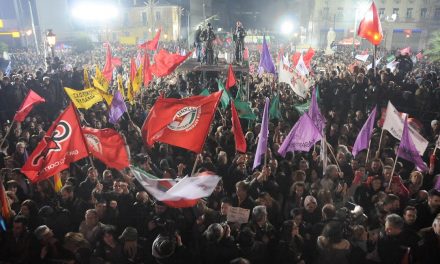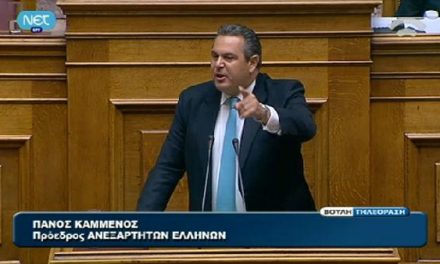Macedonia’s Constitutional Court on Wednesday rejected an initiative to call off the September 30 referendum filed by various opponents of the Greece-Macedonia agreement.
Macedonia’s Constitutional Court voted by seven to two on Wednesday against an initiative that called for a assessment of the constitutionality and legality of parliament’s decision on July 30 to call for a referendum on the Greek-Macedonian “name” deal.
Government spokesperson Mile Bosnjakovski said on Wednesday, after the court’s decision was published, that Zoran Zaev’s government would not comment on the ruling.
The initiative filed by three separate subjects would have derailed the key referendum, which is likely to determine Macedonia’s Euro-Atlantic future, just ten days before the vote.
Had it succeeded, it would have caused political turmoil, with potentially dire international implications. Both Zaev’s government and its Western allies stand firmly behind the “name” agreement and the associated referendum.
Under the deal signed with Greece this summer, Macedonia agreed to change its name to the Republic of North Macedonia, while Greece agreed to lift its long-standing veto on Macedonia’s NATO and EU integration.
But for the deal to take effect, Macedonian citizens must affirm the referendum question, which reads: “Do you support EU and NATO membership by accepting the deal between Macedonia and Greece?”
The initiative against the referendum came before the court as a result of three separate motions filed by the far-left non-parliamentary “Levica” party, the Pan-Macedonian Association World Macedonian Congress and a private citizen from the town of Kumanovo.
The first two groups have strongly condemned the Greek deal as harmful to Macedonian national interests and say the vote should be boycotted.
As a result of the motions, Constitutional Court Judge Elena Gosheva, who acted as the court’s rapporteur in this case, proposed issuing a temporary measure to suspend the referendum. The majority of her colleagues disagreed, however.
Among other things, the motions argued that Macedonia’s Foreign Minister, Nikola Dimitrov, had no legal right to sign the “name” agreement, and insisted that only President Gjorge Ivanov – who is also against the deal – could have done so.
The now rejected motions also disputed the parliament’s decision to call for the referendum, and disputed the referendum question itself.
According to them, the question was unclear and manipulative because it does not treat the country’s Euro-Atlantic accession process and the “name” deal as two separate things.



















